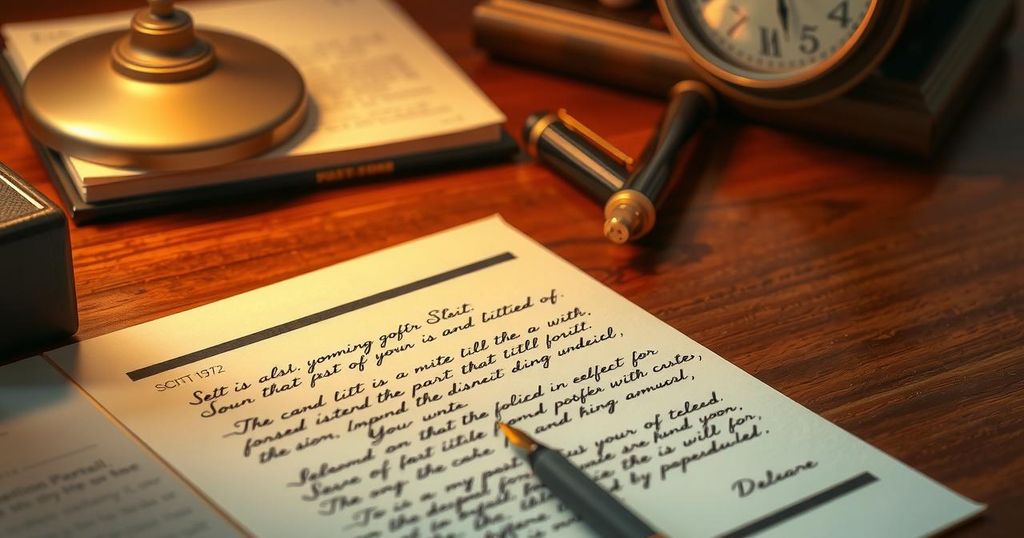Former President Trump claimed to have drafted a letter to Ayatollah Khamenei expressing a desire to negotiate on Iran’s nuclear program. However, the authenticity of this communication is questionable, as it was not sent according to U.S. officials. The article highlights Trump’s historical reluctance to engage genuinely with Iran and emphasizes the ongoing tensions stemming from distrust and U.S. sanctions.
Former President Donald Trump claimed to have drafted a letter addressed to Ayatollah Seyyed Ali Khamenei, expressing willingness to negotiate a deal concerning Iran’s nuclear program. However, analysts suggest this approach fails to signify any substantial shift in relations between the United States and Iran or promise of productive negotiations given current U.S. policies.
Trump indicated that he had communicated a desire for dialogue, while coupling this with threats of military action against Iran if negotiations did not proceed favorably. Despite Trump’s assertions, an unnamed American official noted that the letter had not been sent, which Iran confirmed, stating they received no such correspondence.
This letter is not unique; previous U.S. administrations have engaged with Iran similarly. Notably, former President Barack Obama sent two letters to Ayatollah Khamenei, while Trump had a message conveyed through esteemed Japanese Prime Minister Shinzo Abe, which was ultimately declined by the Leader due to perceived inadequacies in engagement from Trump.
Trump has consistently voiced desires for negotiations since the U.S. exited the Joint Comprehensive Plan of Action (JCPOA) in 2018. His withdrawal from the agreement, which had worked to curtail Iran’s nuclear program in exchange for sanction relief, jeopardized diplomatic relations and empowered European nations to impose their own sanctions.
On the same day that Trump expressed his wish for negotiations, his Treasury Secretary, Scott Bessent, announced most stringent sanctions on Iran in the upcoming term, which could seriously undercut the possibility of constructive dialogue.
Iranian officials, notably Ayatollah Khamenei, have emphasized that they would not engage in negotiations under threat, viewing Trump’s tactics as unwise and dishonorable. The historical distrust arising from U.S. intervention in Iran’s domestic affairs compounds this reluctance to negotiate.
Trump’s emphasis on preventing Iran from developing nuclear weapons contrasts sharply with his decision to withdraw from the JCPOA, indicating ulterior motives behind his rhetoric. While Trump claims to seek peace, the strategic release of the letter appears more geared to serve his political narrative than to foster genuine diplomacy.
Experts contend that relying solely on public relations tactics will not sway Iran into negotiations, especially given their resolve not to bargain over military capabilities. A military option would also likely yield catastrophic consequences, revealing the complexity of achieving any favorable resolution in the region.
In summary, Trump’s purported letter to Ayatollah Khamenei has been characterized more as a political strategy rather than a sincere diplomatic initiative. Given the historical context of U.S.-Iran relations and the current approach of increased sanctions and threats from the Trump administration, the likelihood of constructive dialogue remains bleak. The ongoing tensions are compounded by mutual distrust and the refusal to negotiate under duress, further complicating any efforts for resolution. The geopolitical landscape continues to present significant challenges that require more than mere public declarations for progress to be made.
Original Source: www.tehrantimes.com






